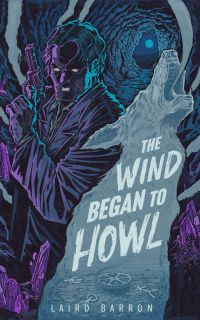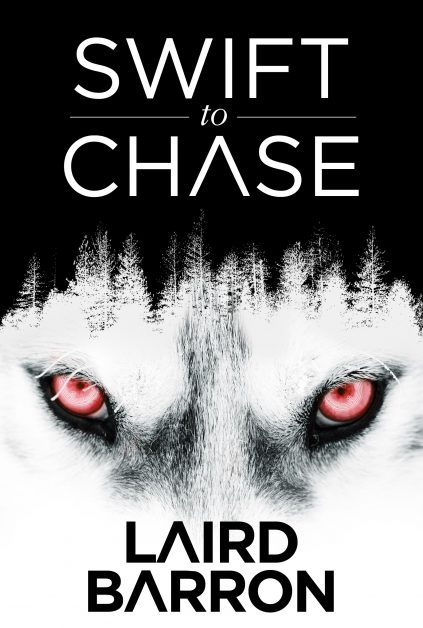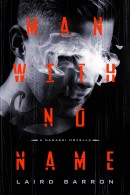New Blood
28October 30, 2014 by Laird
In his introduction to A Book of Horrors, editor Stephen Jones asks, “What the hell happened to the horror genre?”
Considering that we live in a small press horror renaissance, this gambit seems a sort of peevish rhetorical device more concerned with preserving a narrow slice of tradition, and Jones’ related curatorial credentials, than raising a legitimate question.
I recently sat on the Shirley Jackson Awards jury and subsequently edited, alongside Mike Kelly, the inaugural volume of Year’s Best Weird Fiction. I’ve read a staggering amount of contemporary dark fiction these past several years. Stephen Jones, Paula Guran, and Ellen Datlow continue to put forth year’s bests without substantial overlap. In the case of Year’s Best Weird Fiction, a second volume could have arisen from the 2013 crop. A crop that contained a lot of horror. So, yes, I take strong exception to Jones’ rhetoric. It raises the question of why he bothers with his own best of if the situation is so dire. If anything is wrong, it’s that the tide might be rising too high for some who find themselves stuck in the mud.
Horror is ascendant, if not on the New York Times Best Seller List, then in quality and abundance throughout the industry. It is written by established pros, as A Book of Horrors ably demonstrates, and it is written by a slew of emerging authors. Look no further than the changing ToC of Datlow and Guran year’s bests, or recent anthologies by Ross Lockhart and Michael Kelly.
I don’t have to point to veterans such as Gemma Files, Joe Pulver, Paul Tremblay, or Nathan Ballingrud to bolster my case that horror is in good hands. I need not resort to other big guns, such as John Langan, Kelly Link, or Michael Cisco, or stalwarts such as Brian Keene, Conrad Williams, and Norm Partridge. I can show you fear in a handful of authors who’ve appeared on the scene in the last ten years, and in some cases far more recently–these are writers who are already helping reshape the contours of modern horror.
S.P Miskowski
Kaaron Warren
Damien Angelica Walters
Livia Llewellyn
Nate Southard
Steve Duffy
Simon Bestwick
Mike Griffin
Scott Nicolay
Richard Gavin
Ian Rogers
Simon Strantzas
TE Grau
Stephen Graham Jones
Pearce Hansen
Mike Allen
Chesya Burke
Molly Tanzer
Lynda Rucker
Sofia Samatar
A.C. Wise
This isn’t comprehensive, it barely nicks the surface. These writers are attacking the genre from different angles. Some of them venerate tradition, others remold it, and a couple upend it and shred it completely. We live in a time of plenty, my friends.
What the hell happened to horror, Mr Jones? Apparently it’s moving on without you.
Six book recommendations:
Burnt Black Suns by Simon Strantzas
Ana Kai Tangata by Scott Nicolay
After the People Lights Have Gone Off by Stephen Graham Jones
The Moon Will Look Strange by Lynda Rucker
Engines of Desire by Livia Llewellyn
Knock, Knock by S.P. Miskowski







Reblogged this on Sean Hoade — Puttin' It Out There and commented:
Laird always hits it on the nose.
Thanks, Sean.
I think I’m going to come back and read this blog every day. Thanks, Laird!
Keep on keepin’ on, Mike.
I truly appreciate the mention, Laird.
Happy to.
Laird, I really think Steve makes it quite clear on the first page of his introduction what he’s attacking – not the new writers of real horror fiction at all, but specific trends in publishing. After all, he has anthologised quite a few of the writers you yourself list above.
Hi, Ramsey. Jones might have done a better job of it than simply slapping a broad brush across the works. Of course there is more context than his intro to ABoH. We have his recent interview where he whinges about awards juries and refers to certain parties as “pygmies.” We have a record, albeit voluminous, of a certain type of special interest horror, few women, few minorities, Euro centric, straitlaced anthologies, dominated by reprints as opposed to original efforts. In some respects, if Jones wants to know what happened to horror, he can look in the mirror.
ETA Giving credit that Jones intended no slight to the authors of “real horror” laboring in the trenches, his thesis is dismissive of the authors who are indeed performing such work. It is also presumptuous of him to imply his editorial vision would show everyone the true path. The kids are all right, really.
[…] number two, in other Laird Barron related news, is Laird’s latest blog post, New Blood, in which he lists a number of emerging writers who are constitute a sort of new generation […]
[…] Laird Barron posted “New Blood,” calling out some of the current leading lights of horror, springboarding off of an […]
Seems that the book was published in 2011 . . .? Is this a recent discovery, or have you been quietly simmering over this intro for three years?
I read it in 2011. I’ve been busy.
It probably is a response to a recent Jones interview, actually.
Yep, the recent interview was inspirational.
Comment deleted per author request.
I take it you’d like the series to be cancelled, Sean?
The comment to which I replied has been deleted, but it should still be pretty clear from my response. For the record, I suppose my view is the same as Steve’s, which is why we co-edited BEST NEW HORROR for a while. I think what matters is how good the story is, not who wrote it.
I agree Ramsey. The focus should remain on the art, not the artist.
That’s a fine notion. However, when one sets forth to editorialize it shouldn’t be a shock if there’s a reciprocal reaction. Frankly, in Jones’ case, the gauntlet should’ve been picked up long ago. ETA–I don’t buy the notion that an editor with access to the whole of the field can’t do better in regard to diversity.
Sure, anyone who editorializes should expect to receive feedback.
Yet what would you say is the relationship between author diversity and story quality? Is it pragmatic to weaken an anthology for the sake of being inclusive, or should all art stand on it’s own? I’m not trying to troll here, it’s something I’ve honestly wondered about as I see LightSpeed, Nightmare, Lovecraft E-zine, and others launch their ‘Women/Queers Destroy ‘ campaigns. My feeling is that if women write all the best horror/sci-fi this year, then I’m absolutely happy to buy and read it. Yet what purpose does serving up less than the absolute best fiction for the sake of diversity serve?
I ask because you obviously see things from your position that aren’t apparent to ‘Joe reader’ like myself when it comes to these issues.
You take the best stories for a year’s best. If it skews, it skews. If it skews radically over time and volume, then it warrants a look. “Best of” is subjective, let us not kid ourselves. Jones has demonstrated a relentless preference for white European male authors over his career–I suspect there’s a bit of confirmation-bias at play in selecting the “best” stories of the year.
However, best-of is a digression from the point of my essay wherein I quote Jones’ introduction to an original anthology. The picture is bigger than best-of anthologies. His bellicose declarations illuminate a rather hidebound stance.
Ultimately, I find the dearth of diversity in his mountain of themed reprints and handful of originals to be inexplicable. Albeit, the picture comes into focus once you absorb a bit of Jones’ rhetoric.
Cool, I appreciate the insight.
I see where you’re coming from more clearly now.
Thanks
And to address this:
“Yet what purpose does serving up less than the absolute best fiction for the sake of diversity serve?”
That would certainly be undesirable if it were put into action. It’s an argument that is deployed whenever the subject of diversity is broached. I believe it’s fallacious. Gender in horror/weird fiction skews toward white males, but in reading for Best Weird Fiction and the Jackson Awards, I ran across plenty of great work by a spectrum of authors. In fact, the more I ponder that, the more I’m tempted to pop the buttons of my collar and shout, “Bullshit!”
ETA not directed toward you. This tactic has been used countless times in hostile circumstances. I see our discussion as a reasonable one.
Ramsey–I am critical of Jones, but the cancellation of BNH would be an unfortunate loss.
Could you point me in the direction of the offending interview, Laird?
Here you go, Ramsey: http://www.thehorrorzine.com/Special/StephenJones/StephenJones.html
Oh, thanks, Laird! Actually, I had already read it – just didn’t realise that was the one.
[…] Laird Barron lists new horror writers and recommends a few specific books. He says that wasn’t too tough to do, given that we’re in a renaissance of sorts for the genre, especially through small presses. I don’t suppose anyone will be surprised to know that I own all six of the books Barron mentions, as well as his new anthology, Year’s Best Weird Fiction. Barron’s own work is astonishingly good; try Occultation some night when you don’t care if you get any sleep. […]